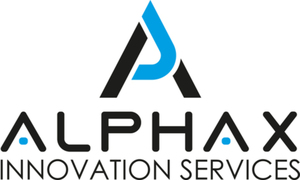The Key differentiators of the Blockchain
- Decentralization: Blockchain has no main servers. Data fragments are stored distributed in the blockchain and each node has a copy of the current state of the database. Therefore, no node in the network has data sovereignty.
- Non-manipulable: Thanks to the data distribution, manipulations in the blockchain become conspicuous. Not only the data distribution, but also other features of the blockchain such as the way the blocks are linked, the hashing function, etc. make manipulation almost impossible.
- Transparent: The transactions in (public) blockchain are visible to everyone. For example, anyone on the bitcoin blockchain can view and track bitcoin transfers. However, there are ways to restrict read and write permissions, which is mainly done with a private blockchain. The private blockchains are used in the enterprise context, among other things.
- Blockchain also has other advantages such as high data security, independence and much more.
Blockchain is a technology that is applicable in many cases. With this functionality it is possible to create both the desktop software and mobile applications.
Smart contracts, among other things, are used in blockchain technology. These are programmed “if-then rules” which are executed after the fulfillment of previously defined conditions. Its scope is so broad that any human interaction can be programmed and automated using it, including finance, logistics, media, education, analytics, etc.
Examples of suitable application areas for blockchain technology are as follows:
- If there is a lack of trust or transparency among those involved (e.g. when casting a vote) or if the data should be disclosed.
- When you need solid evidence or want to avoid fakes. Examples of this are “bill of lading” in sea freight, tamper-proof proof of origin for luxury products (e.g. diamonds), car spare parts or even food.
- When you avoid using centralized systems and no one is allowed to have data sovereignty.
- If the technology can bring you a USP at little cost and improve your market position accordingly.
If you do not know whether blockchain technology would be suitable for your individual application or whether it can generate added value for you, we are at your disposal and will advise you without obligation and free of charge. Use the contact form and make an appointment with us!
Blockchain technology business areas
Blockchain technology can be used in a variety of business areas to improve efficiency, security, and transparency. Here are some examples:
- Finance: Blockchain can find applications in the finance sector, such as cross-border payments, securities clearing and settlement, cryptocurrency trading, and digital identity management. The decentralized nature of the blockchain allows transactions to be processed faster, cheaper and more securely.
- Insurance: Blockchain technology can help insurance companies fight fraud, speed up claims processing, and improve traceability of insurance policies. Smart contracts can automatically validate claims and trigger payments when certain conditions are met.
- Supply Chain Management: Blockchain provides transparency and traceability along the entire supply chain. Businesses can verify the provenance of products, prevent counterfeiting, and share information about quality, storage, and transportation. This is especially important for industries like food, pharmaceuticals and luxury goods.
- Healthcare: In healthcare, blockchain technology can improve the security and confidentiality of patient data. Patients can be in control of their own medical records and securely share them with doctors and other healthcare organizations. In addition, the blockchain can help in tracking medicines in the supply chain to fight counterfeit medicines.
- Real Estate: Blockchain can simplify the real estate trading process by making the transfer of ownership rights transparent and secure. Smart contracts can automate the purchase, sale and transfer of real estate and protect those involved from fraud.
- Energy: Blockchain can be used in the energy industry to facilitate renewable energy trading, streamline energy billing, and enable peer-to-peer energy trading. Due to the decentralized nature of the blockchain, energy producers and consumers can interact directly with each other without having to rely on central intermediaries.
These are just a few examples, and the possible uses of blockchain technology are many. With its ability to make transactions secure and transparent, it has the potential to revolutionize business processes in many industries and create new opportunities.
How we create blockchain products on demand
Either you request the blockchain-based project, or we embody your idea using this technology when it best suits the goal.
- We conduct separate research on the task to identify the most appropriate methods;
- We advise you on the advantages and disadvantages of the technology tailored to your needs;
- Our team consists of experts in smart contracts and additional services required for managing smart contracts;
- There are separate teams working on the backend databases and user interface;
- We test product compatibility with other technologies and target platforms;
- We provide full documentation for future reference.

